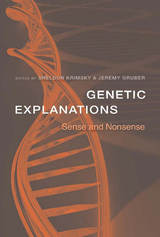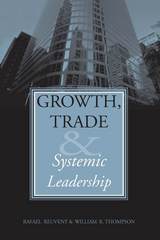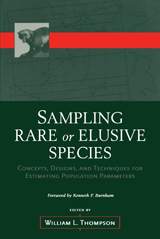

Can genes determine which fifty-year-old will succumb to Alzheimer’s, which citizen will turn out on voting day, and which child will be marked for a life of crime? Yes, according to the Internet, a few scientific studies, and some in the biotechnology industry who should know better. Sheldon Krimsky and Jeremy Gruber gather a team of genetic experts to argue that treating genes as the holy grail of our physical being is a patently unscientific endeavor. Genetic Explanations urges us to replace our faith in genetic determinism with scientific knowledge about how DNA actually contributes to human development.
The concept of the gene has been steadily revised since Watson and Crick discovered the structure of the DNA molecule in 1953. No longer viewed by scientists as the cell’s fixed set of master molecules, genes and DNA are seen as a dynamic script that is ad-libbed at each stage of development. Rather than an autonomous predictor of disease, the DNA we inherit interacts continuously with the environment and functions differently as we age. What our parents hand down to us is just the beginning. Emphasizing relatively new understandings of genetic plasticity and epigenetic inheritance, the authors put into a broad developmental context the role genes are known to play in disease, behavior, evolution, and cognition.
Rather than dismissing genetic reductionism out of hand, Krimsky and Gruber ask why it persists despite opposing scientific evidence, how it influences attitudes about human behavior, and how it figures in the politics of research funding.


By closely examining the sources, movements, and persons of the Renaissance and the Reformation, Voegelin reveals the roots of today's political ideologies in this fourth volume of his History of Political Ideas. This insightful study lays the groundwork for Voegelin's critique of the modern period and is essential to an understanding of his later analysis.
Voegelin identifies not one but two distinct beginnings of the movement toward modern political consciousness: the Renaissance and the Reformation. Historically, however, the powerful effects of the second have overshadowed the first. In this book, Voegelin carefully examines both periods and their presence in modern thought.
The Renaissance, represented by the works of Niccolò Machiavelli, Desiderius Erasmus, and Thomas More, is characterized by a struggle for balance. Machiavelli and Erasmus both looked to a virtuous prince to achieve order, one calling for brute force and the other for Christian spirituality to reach their goal. Also a participant in the first beginning of modernity, More was a complex thinker identified as a saint both of the church and of the communist movement. The issues he explored in Utopia, as Voegelin demonstrates, indirectly gave rise to concepts that have profoundly affected Western history: colonization, imperialism, national socialism, and communism.
Exploring the transition from the Renaissance to the Reformation is a brilliant chapter, "The People of God," which examines the sectarian movement. These pages contain the rich historical background that led to Voegelin's later conclusions about Gnosticism and its modern influences.
Voegelin offers a controversial view of the Reformation as well as the political and religious situation directly preceding it. Yet he sheds light on the strengths and inadequacies of its key figures, Martin Luther and John Calvin. The driving force behind the Reformation stemmed solely from the powerful personality of Luther. What began as an abstract, purely technical discussion developed into a full-blown revolt. Later in the period, Calvin confronted the problems left behind by Luther and endeavored to create his own universal church to supplant the Catholic Church. His theory of a new elite would have a distinct impact on history.
By examining the political ideas that first emerged during the Renaissance and Reformation, this fascinating volume provides a foundation for understanding the events of centuries to follow.

The sixth and final volume in the History of Wisconsin series examines the period from 1940-1965, in which state and nation struggled to maintain balance and traditions. Some of the major developments analyzed in this volume include: coping with three wars, racial and societal conflict, technological innovation, population shifts to and from cities and suburbs, and accompanying stress in politics, government, and society as a whole. Using dozens of photographs to visually illustrate this period in the state's history, this volume upholds the high standards set forth in the previous volumes.

Information regarding population status and abundance of rare species plays a key role in resource management decisions. Ideally, data should be collected using statistically sound sampling methods, but by their very nature, rare or elusive species pose a difficult sampling challenge.
Sampling Rare or Elusive Species describes the latest sampling designs and survey methods for reliably estimating occupancy, abundance, and other population parameters of rare, elusive, or otherwise hard-to-detect plants and animals. It offers a mixture of theory and application, with actual examples from terrestrial, aquatic, and marine habitats around the world.
Sampling Rare or Elusive Species is the first volume devoted entirely to this topic and provides natural resource professionals with a suite of innovative approaches to gathering population status and trend data. It represents an invaluable reference for natural resource professionals around the world, including fish and wildlife biologists, ecologists, biometricians, natural resource managers, and all others whose work or research involves rare or elusive species.


First paperback edition.
READERS
Browse our collection.
PUBLISHERS
See BiblioVault's publisher services.
STUDENT SERVICES
Files for college accessibility offices.
UChicago Accessibility Resources
home | accessibility | search | about | contact us
BiblioVault ® 2001 - 2024
The University of Chicago Press









